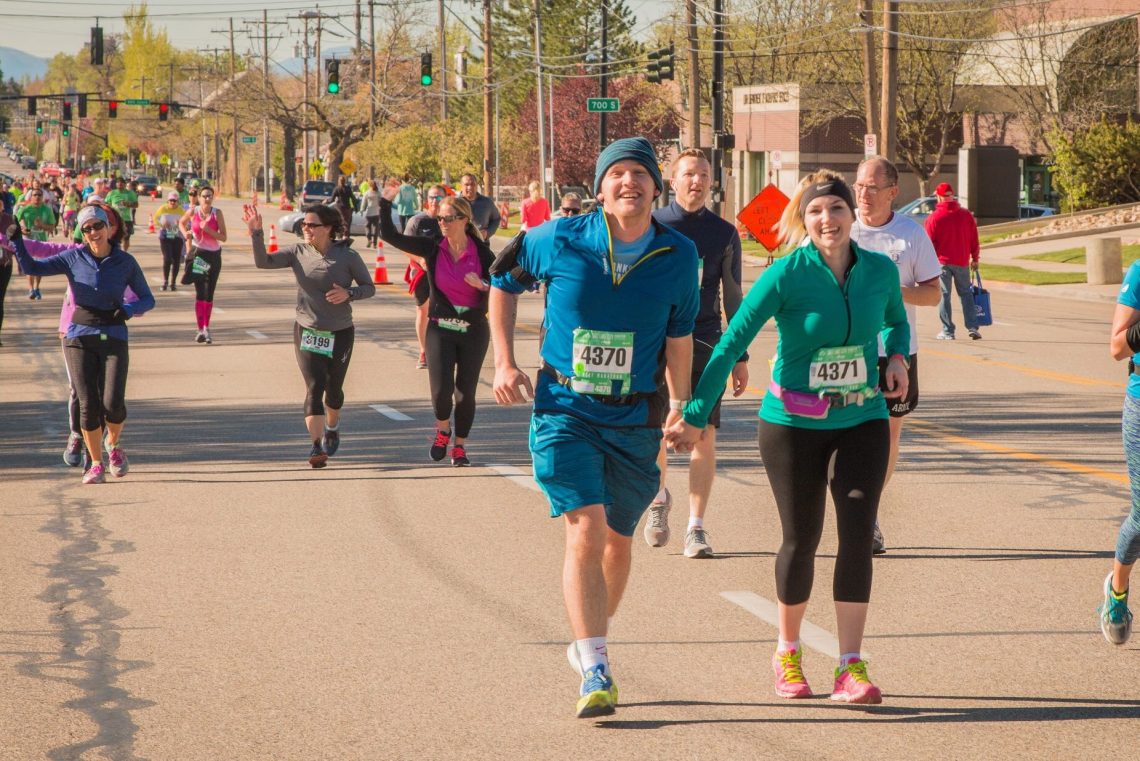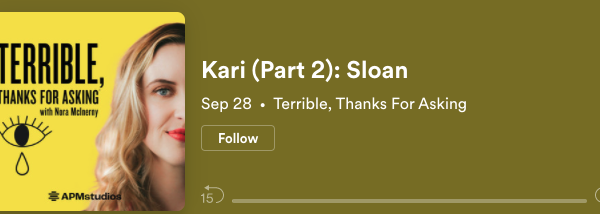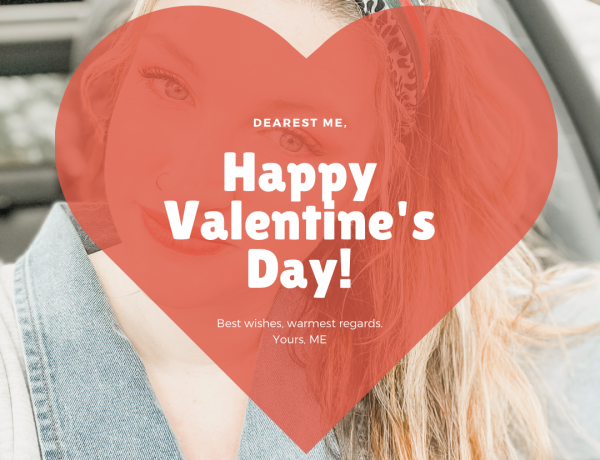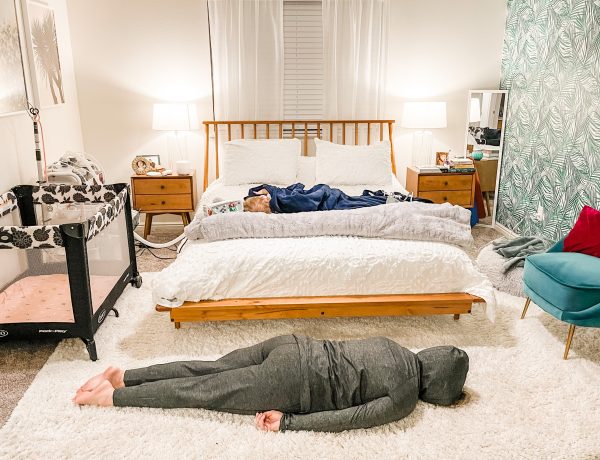This post is a tougher one to share. Why? Because I know this is just my perspective – other suicide survivors might agree or disagree. All of our experiences are so unique and I acknowledge the wide range of emotions, pain, anger, and grief in that.
I’m also reticent in sharing this post because I know you (yes – hello, you!) might be reading this and will remember saying one of these things to me in the last eight months. If this does apply to you: I promise it’s okay. I don’t remember specifics around who said what. There’s a period of time after Aaron’s passing where I completely black out, and another period of time where I can barely remember what I did day-to-day. Sharing this is simply aiming for awareness and collective growth.
If you know me at all, you know I’m a big proponent of evolving and learning so we can do better and be better. It’s rarely easy or perfect, but I firmly believe we need to face growth head-on and try.
So…Let’s face it together. Here we go.
Don’t ask a suicide survivor these questions…
1. “Did you see the signs?“
When someone asks if a loved one saw the signs (or any signs), let’s stop to ask ourselves: what is the real goal of this question? Is the goal to make sense of the death? Or is the goal to provide ourselves comfort, idealizing a world in which we think these things won’t ever happen to us? Because there are signs. And there aren’t.
There’s never much sense to be made in unexpected death to begin with, and suicide is no exception. Why? Because lacking logic and reason is the exact thing that caused the suicide in the first place. It’s an act from a place of mental illness. In asking about signs, not only are we trying to find rationality in the irrational, but it shifts blame on to the survivors. It’s a really nice, very well-intentioned way of saying “Hey – so did you kill them? Or the perpetrator of their abuse? Or their meds? Can you just explain it to me so I know it won’t happen to me?” ….Nope. Can’t explain, wish I could. I also wish I could say you won’t ever have an experience like this. But, from experience, I can’t.
For what it’s worth, there aren’t always clear signs. In fact, there rarely are. It’s a nonsensical question to ask someone.
Unexpected death – specifically by suicide – is all screwed-up and complex: kinda like life. Soon after Aaron’s passing, I did the same thing everyone was doing to me. I tried make sense of it all and called his therapist, asking him if he “saw the signs.” Aaron’s therapist was in disbelief. …Literally. He didn’t believe me. He initially told me I had the wrong therapist, and once I shared Aaron’s personal details he realized we really were talking about the Aaron he saw twice a week. He mentioned how he had marked Aaron as “improving, doing really well” on his medical charts. Then he said most of Aaron’s appointments involved Aaron frequently talking about how he wanted to better himself because he loved me and Sloan so intensely. All Aaron wanted was for me and Sloan to be safe and protected in the end.
Aaron’s death didn’t make sense to his therapist: there weren’t clear signs.
It hasn’t made sense to me: there weren’t clear signs.
There isn’t sense to be made with any of it. And, through it all, I know Aaron would say the same thing if he were sitting here with me today.
2. “I should have reached out to him.“
Feel free to say you should have reached out to anyone else but the person closest to the individual who died by suicide. I know it’s a valid, real feeling for so many people after any kind of death. People said it to me about my mom, too. But, in my case with Aaron, as people have told me this exact thing – it’s invalidating and creates additional guilt for me. Here’s why.
I’m the main person that sat by Aaron’s side 24/7 for the last 13 years – especially in the dark, crappy moments. We always had each other’s back. I believed in him when nobody else would. And for a young couple married straight out of high school coming from different religious and cultural backgrounds, we were forced to have each other’s back in pretty intense ways very quickly into our relationship. So a comment like this can serve to hurt; implying I didn’t quite have his back like I should have. I truly know people don’t mean any harm by saying this to me. Honestly, they aren’t even thinking of me, which isn’t a bad thing. They’re simply reflecting on their own insecurities and trying to explain the death the best they can.
One key thing people don’t know is how hard Aaron and I worked to help him navigate his emotions and trauma. He was attending therapy, I had taken over night shifts with Sloan so he could get good sleep, he was working on finding the right medication, and he was meditating and exercising morning and night. He was doing both the medical stuff and the holistic stuff: all the right things.
Aaron needed a much more intensive therapy, including a hospital admission. In fact, I was driving him to the hospital because I was concerned about him just a week before he died. As we drove, we talked and he eventually said he was okay and felt much better. I pulled over, looked him in the eyes and made him say it to me again. He was so earnest. I still believe that was his truth in that moment. So we went home.
But I often think about what might have happened if I didn’t believe him that day and just kept on driving. And that’s a heavy thought.
I will always love the dude, flaws, perfection, and all, with all of my heart. But to be fair to him, he was hiding much deeper feelings and experiences from me that caused a greater angst than I even realized. He was hearing voices from his childhood, seeing the perpetrators of his abuse in the mirror, and withholding shame and debilitating fears from me. The worst part? His mental breaks were happening in the dark of night, when I wasn’t awake to witness it or help him.
Put bluntly: don’t vent to the immediate survivor of a suicide death about how you should’ve sent a text. Share that with someone else slightly less impacted by the suicide.
You never know what the survivor of suicide faced on their end. Many survivors see and hear things most people won’t ever know or understand. And suggesting a text or simple outreach could have helped their loved one live only demoralizes and invalidates the exhaustive efforts of the survivor.
3. “How did they do it?“
Just read the table on this one. Because…Why does it matter? They’re dead.
And the reality is 95% of people that have asked this are morbidly curious. I can tell by how swiftly they ask and the look on their face. (Also that 95% stat is backed by Kari science, just so you know. I science a lot.)
We live in a Kardashian-inspired world where the hot goss is our best friend. We want to know the grim details of something so we can tell everyone around us – proving that we are either a) close to the situation or b) party to the hot goss. I’ve experienced this in both my mom and Aaron’s deaths, since they were both so unexpected and difficult to face.
For me, there is absolutely an additional 5% (again, Kari does science) of people that were truly close to Aaron that deserved every detail of what happened that day. And I told them the minute I saw them. They needed the details to process what just happened. And when those individuals have asked me how he died I could see the love, pain, and empathy for Aaron (and me) on their faces. Aaron in his mentally ill state completed suicide in the most Aaron in his right-mind-like way: thinking of what I would see and using way too much science. It’s dark, unusual, and true. While death is always traumatizing: I’m not terribly traumatized by what I saw of him. He was just gone. And Aaron didn’t feel a lot of physical pain in the end.
So for those seeking morbid deets: sorry. I’ve got nothin’. Kinda sucks to think I was cluelessly eating Chipotle and watching Yolanda Hadid’s model show while he followed through, though.
Maybe that’s enough good tea for now?
4. “I never saw <insert-thing-here>“
I can’t even count how many people have said to me they never saw or heard of a history of abuse or trauma with Aaron. And that’s terrifying. And sad. Shouldn’t we aim to believe and stand up for people when they tell us their biggest source of pain and hurt? Do we jump to say these things to victims because they serve to comfort us? Are we just trying to ignore the harsh truths, experiences, and memories that others face on the daily?
…Frankly, I just never know how to respond this. Usually an awkward “okay?” Because….yes? Like, who actually sees a perpetrator in abuse-mode publicly? Or when are we casually dropping questions like: “so, what’s your latest trauma or abuse story?”
That stuff just doesn’t come up often. And – hopefully – if we did see someone treated horrifically we would try to stop it, right? Many people struggle with experiences and pain that happened behind closed doors – never to be seen or shared. And, ultimately, their stories are never actually believed or honored because of that.
We need to work on believing people when what they’re saying isn’t popular, comfy, or cool.
We need to work on standing up for those we love in their pain and experiences. And sometimes that’s not easy, because passively ignoring a problem isn’t always the answer.
We need to work on supporting victims and those who are willing to share their deepest, darkest pain.
5. “My <person> struggles. I mean, they’d never kill themselves, but I still know what it’s like do deal with loving someone with depression.”
Aaron was the last person that I ever thought would die like this. And that list includes me. So…Yikes.
I know it’s hard to sit in this thought, but we just never know what comes next for us and our loved ones. And mental illness is just as real as any other kind of illness we face.
There are also a few other key reasons this statement is problematic. 1) It’s a comparison game. It serves to reinforce that their partner would never do it, but mine did. 2) Sure, being a spouse to someone who struggles with mental illness means you know what it’s like to support them and empathize with them. And I appreciate that. But it doesn’t mean you know what it’s like to survive them yet. 3) When it comes to suicide, we just can’t confidently know who’s next. I never thought I would be here. Aaron didn’t plan on this, either.
Nobody is immune from heavy, hard stuff. But we CAN continue to support each other, believe each other, and live in each other’s experiences: aiming to glean knowledge and information from those who share with us.
6. “He was always so happy, didn’t seem depressed at all!”
Friendly reminder – not all suicides or mental illness stem from depression or a constant form of sadness and pain. So, yep. He was happy. But he was also experiencing episodes after working through a relapse in his mental health. He was navigating shame and deeper pains from his past. He had worked through this stuff in therapy when we were first married, but it came back full-force after some of our bigger life trauma that occurred. Sloan’s birth and my mom’s death hit Aaron extremely hard. He was working full-time to navigate all of it.
Aaron was happy. That’s the shitty, complicated part.
He loved Sloan and I more than anything and made that clear a million times a day. His favorite part of quarantine were the early-morning virtual Zumba classes where we danced, laughed, and jumped around Sloan. Right after our Zumba class that particular day, Aaron came to me disclosing trauma, shame, and other painful experiences he withheld from me. Then he casually mentioned he scheduled a therapy appointment for that evening to begin telling his therapist and working through those experiences. (This wasn’t out of the norm at all. He was so calm when he left.)
And – as he took off to what I thought was a virtual therapy appointment to provide him treatment…That was it. The last time I saw him alive.
So in the end we just can’t make sense of everything all the time..But we can continue to realistically grow, learn, and treat each other right. And, in this case, that means taking some time to revisit why we say the things we do.
If we can do that for anyone, we can do it for Aaron: the master of learning and growth for so many years.
I firmly believe there are things we try to do to put experiences and humanity into a box. That way we can explain the hard stuff and move right along. But, in all actuality, that just isn’t life. Was Aaron a victim of past trauma and abuse? Yep. Did he carry that pain forward as he thought about his future? Yep. Was he traumatized after the intensity of our daughter’s birth and my mom’s death? Yep. Are any of these the cause of why he died?
Nope.
While they contribute, suicide lacks explanation or reason. And when it comes to his death: nobody is at fault. Not me, not you, and tbh not even Aaron or the loved one you’ve lost.
<3 – Kari



